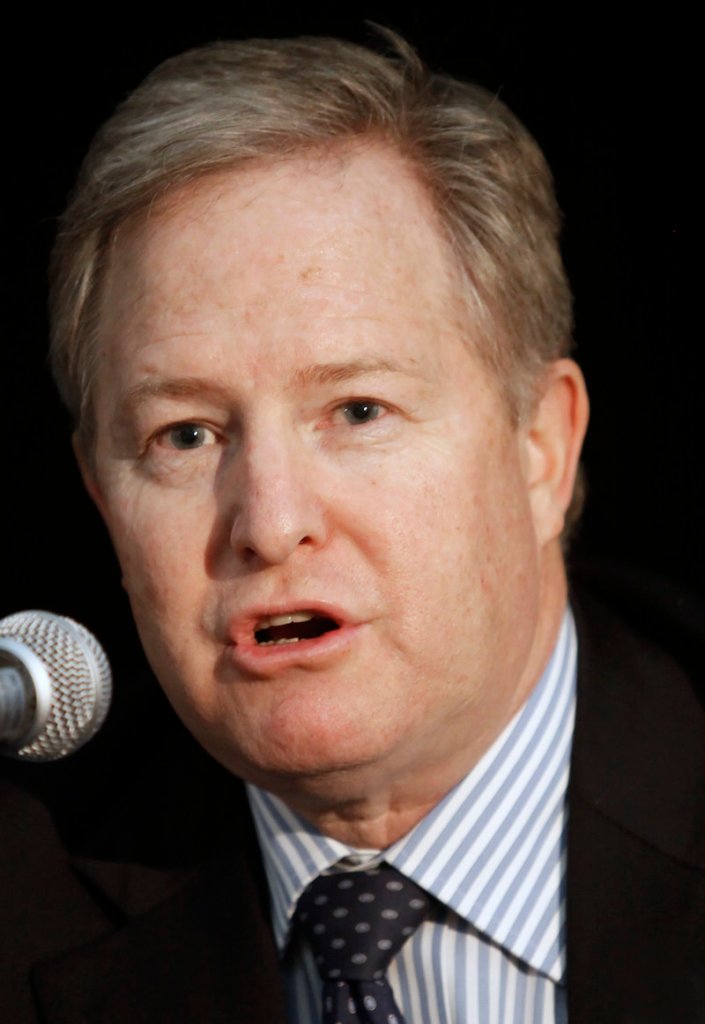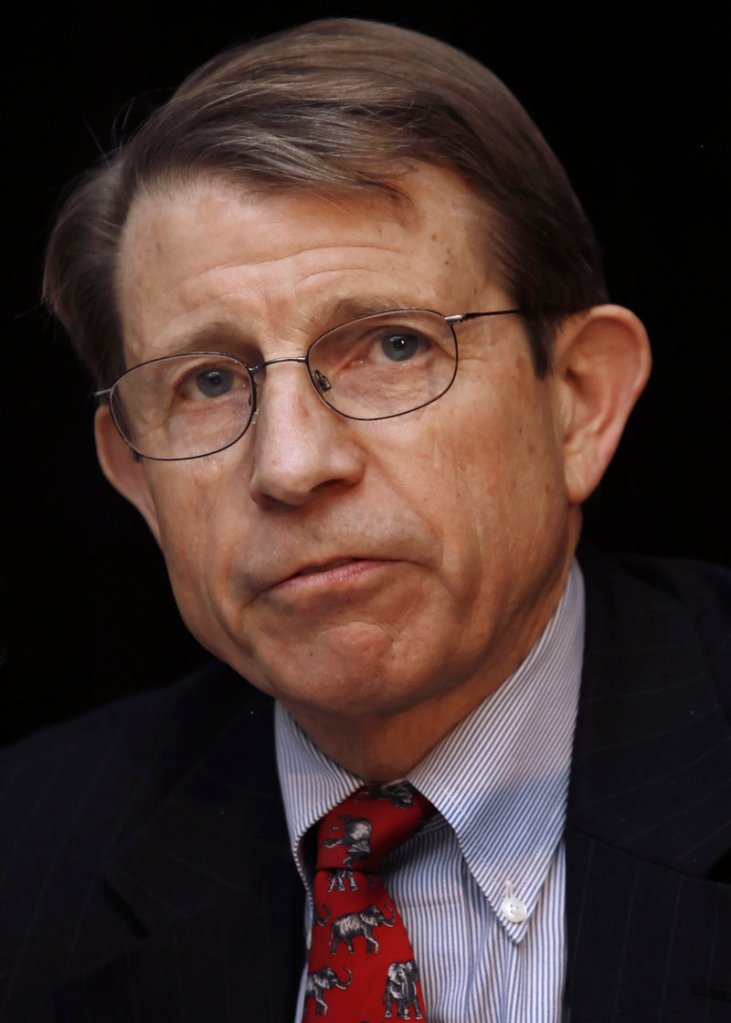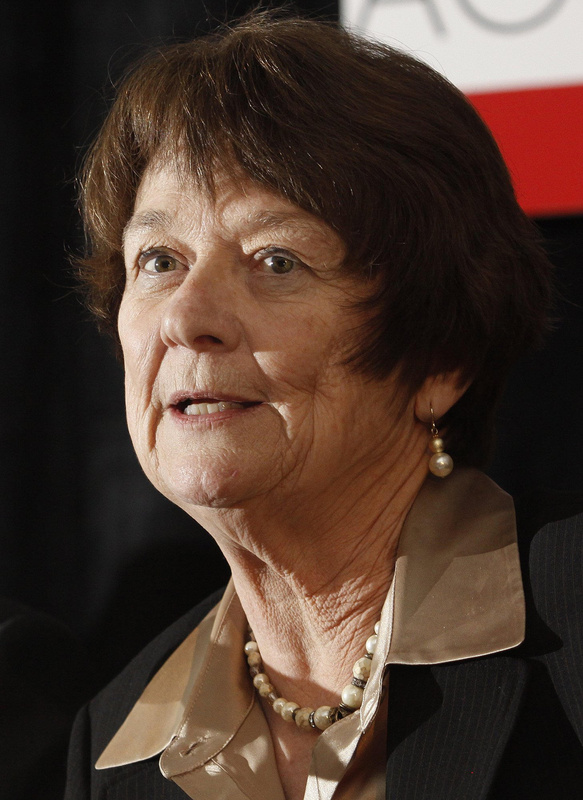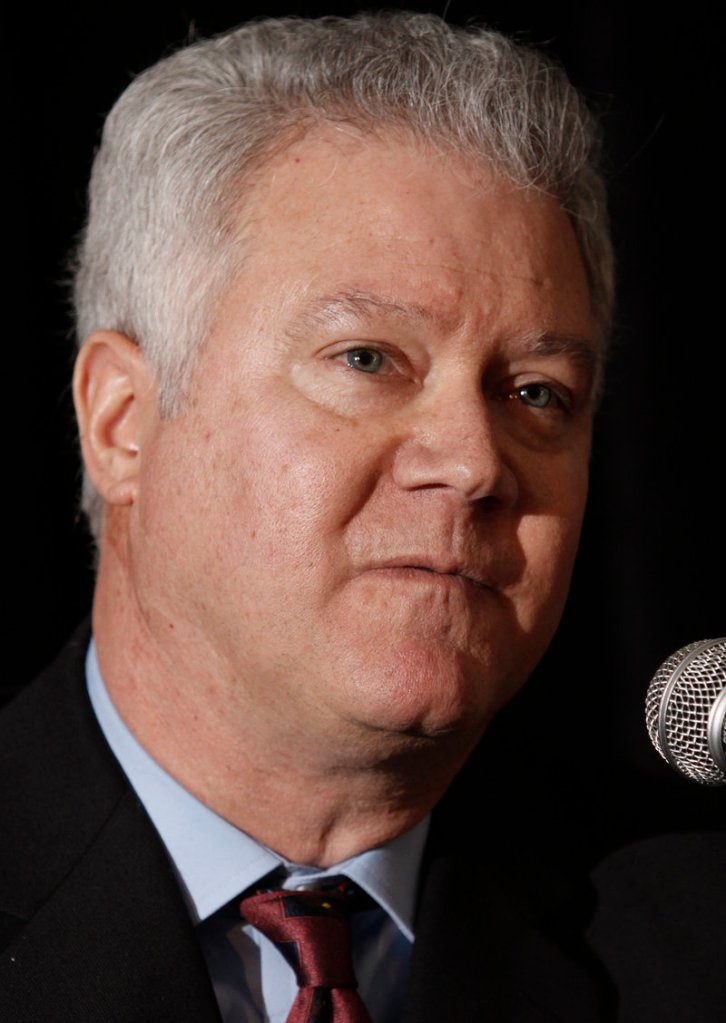AUGUSTA — Four candidates for governor could each qualify for as much as $600,000 in public financing for their primary campaigns.
Before today’s deadline, one Republican and two Democrats had turned in the checks and seed money they needed to qualify. Democrat John Richardson is expected to turn in the final paperwork today, according to his campaign.
Republican state Sen. Peter Mills has already been certified and received the maximum $600,000 for his primary campaign, said Alison Smith, steering committee co-chairwoman for Maine Citizens for Clean Elections, an advocacy group that monitors and promotes use of the system.
Two Democrats, Patrick McGowan and state Senate President Elizabeth Mitchell, said this week that they believe they have met the requirements to qualify. Richardson has until 5 p.m. to complete the process.
“Yes, I believe we will (qualify),” Richardson’s campaign manager, Monica Castellanos, said Wednesday. “I’m sorting through paperwork right now.”
The Maine Commission on Governmental Ethics and Election Practices has until April 8 to review applications and ensure all requirements have been met.
At least one Republican is trying to make an issue of the use of public money to fund political campaigns. Matt Jacobson, who is raising private money for his campaign, has said in recent weeks that he doesn’t think taxpayer money should be used to pay for “political lawn signs and bumper stickers.”
Jacobson used his opposition to the system in a fundraising letter sent via e-mail titled “Taxpayer-funded Election Welfare.”
The state is expected to spend $8.5 million to $9 million on this year’s legislative and gubernatorial races, Smith said.
Voters approved a citizen initiative in 1996 to allow gubernatorial and legislative candidates to use public money for their campaigns. The system was implemented in 2000 for legislative candidates and 2002 for gubernatorial candidates.
Smith said national polls show that voters want candidates to use public money to reduce the influence of special interests. “It’s not the time to turn elections over to those who can make large contributions,” she said.
No successful gubernatorial candidate has used the system. Gov. John Baldacci, a Democrat who was elected in 2002 and re-elected in 2006, raised private money for his campaigns.
Candidates can use public money or raise private money to pay for campaigns. The 12 party-affiliated candidates on the June primary ballots have chosen different methods, even within their own parties.
Mills is the only Republican participating in the system. Jacobson, Steve Abbott, Bill Beardsley, Paul LePage, Les Otten and Bruce Poliquin are all privately financed.
Because Otten reported having more than $600,000 in January, Mills got an initial installment of public money that included the first disbursement of $400,000 and the maximum amount of matching money, $200,000, Smith said.
The system allows matching money for Clean Election candidates to try to level the field for those who compete against privately funded candidates.
Democrats who are using the system will get an initial $400,000, but won’t receive more unless any opponents receive or spend more than that.
Privately funded Democrats Rosa Scarcelli and Steve Rowe will be required to begin regular reporting once they exceed $400,000. As of January, both reported raising about $250,000.
If any of the Clean Election candidates wins in June, they will become eligible for up to $1.2 million for the general election. That includes $600,000 initially and up to $600,000 to match their opponent’s money.
No independent candidates appear to be working to meet today’s deadline, although at least two have indicated an interest in using state money, Smith said.
For this election, the requirements have been toughened to “keep public funds out of the hands of marginal candidates,” she said. The requirements call for candidates to collect at least 3,250 qualifying contributions of $5 each and raise $40,000 in seed money.
“It is, in fact, very difficult to qualify for Clean Election funds,” Smith said.
MaineToday Media State House Reporter Susan Cover can be contacted at 620-7015 or at:
scover@centralmaine.com
Send questions/comments to the editors.






Comments are no longer available on this story